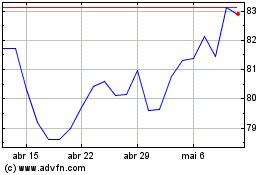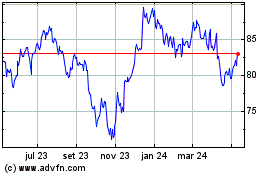Here is my short-form take on President Obama’s State of the
Union address. This is written to outline four major areas
that concern stock market investors.
I have excerpted the first three sections -- Labor
Markets, Sector Priorities, and Fiscal Progress -- out of the
actual address. The fourth section comes from a piece written
in Europe, which addresses the European Free Trade perspective.
I. Labor Markets – Alan Krueger, President’s Chief
Economics Advisor
Minimum Wage Hike, Incentives to Hire LT Unemployed,
Early Education
How do we attract more jobs to our shores? How do we equip
our people with the skills to get those jobs? And how do we make
sure that hard work leads to a decent living?”
- Obama outlined steps to help all children get high-quality
preschool.
- Offer incentives to companies that hire Americans who’ve got
what it takes to fill that job opening, but have been out of work
so long that no one will give them a chance anymore.
- Increase in the minimum wage, from $7.25 an hour now, to $9 an
hour, was the most tangible of a raft of initiatives.
II. Sector Priorities
A. Manufacturing - see Vanguard
Industrials ETF VIS
Obama’s address indicates he wants federal government
prioritized into sectors where investments make high returns:
Last year, we created our first manufacturing innovation
institute in Youngstown, Ohio. A once-shuttered warehouse is now a
state-of-the art lab where new workers are mastering the 3D
printing that has the potential to revolutionize the way we make
almost everything. There’s no reason this can’t happen in other
towns.
So tonight, I’m announcing the launch of three more of these
manufacturing hubs, where businesses will partner with the
Department of Defense and Energy to turn regions left behind by
globalization into global centers of high-tech jobs. And I ask this
Congress to help create a network of 15 of these hubs and guarantee
that the next revolution in manufacturing is made right here in
America. We can get that done.
B. Oil & Gas/Energy - see
S&P Energy XLE
So tonight, I propose we use some of our oil and gas
revenues to fund an Energy Security Trust that will drive new
research and technology to shift our cars and trucks off oil for
good. In fact, much of our new-found energy is drawn from lands and
waters that we, the public, own together.
Obama likewise called for a doubling of energy production by
2030 and urged Congress to take up climate-change legislation that
failed during his first term.
He said that if Congress didn’t act on climate change, he would
prepare a series of executive actions to “prepare our cities and
nation for the worsening effects” of a hotter climate.
C. Infrastructure - see S&P
Global Infrastructure IGF
So tonight, I propose a “Fix-It-First” program to put people
to work as soon as possible on our most urgent repairs, like the
nearly 70,000 structurally deficient bridges across the country.
And to make sure taxpayers don’t shoulder the whole burden, I’m
also proposing a Partnership to Rebuild America that attracts
private capital to upgrade what our businesses need most: modern
ports to move our goods, modern pipelines to withstand a storm,
modern schools worthy of our children.
D. Housing - see Vanguard’s ETF
REIT VNQ
Let’s put people back to work rebuilding vacant homes in
run-down neighborhoods. And this year, my administration will begin
to partner with 20 of the hardest-hit towns in America to get these
communities back on their feet. We’ll work with local leaders to
target resources at public safety, and education, and
housing.
But even with mortgage rates near a 50-year low, too many
families with solid credit who want to buy a home are being
rejected. Too many families who never missed a payment and want to
refinance are being told “no.” That’s holding our entire economy
back. We need to fix it. Right now, there’s a bill in this
Congress that would give every responsible homeowner in America the
chance to save $3,000 a year by refinancing at today’s rates.
Democrats and Republicans have supported it before, so what are we
waiting for? Take a vote, and send me that bill.
III. Fiscal Progress - see Powershares
High Yield PEY
The Committee for a Responsible Federal Budget said Monday that
policy makers need to find at least $2.4 trillion more in
savings.
On March 1, about $85 billion in automatic spending cuts for the
military and various domestic agencies are set to take effect. Both
the White House and Republicans have said they want to avert the
cuts, but they still disagree on how to do it. Obama shot down a
Republican idea to protect the military alone from the draconian
cuts.
Economists and the Congressional Budget office have warned that
if the cuts, known as “the sequester,” are not avoided, it would
cut U.S. growth in half in 2013. The Congressional Budget Office
has projected an $845 billion deficit this year, which would be a
40% drop from the deficit in 2009.
Obama offered fiscal conservatives an olive branch, however,
saying he was prepared to achieve the same amount of healthcare
savings as proposed by the bipartisan Simpson-Bowles commission.
That plan called for $341 billion in savings from federal
entitlement programs.
Already, we have brought home 33,000 of our brave servicemen
and women. This spring, our forces will move into a support role,
while Afghan security forces take the lead. Tonight, I can announce
that over the next year, another 34,000 American troops will come
home from Afghanistan. This drawdown will continue and by the end
of next year, our war in Afghanistan will be over.
IV. European Free Trade - see
S&P Europe 350 IEV
From a BBC article, so this is the European view:
Mr Obama announced US support for talks as part of his
annual address to Congress on Tuesday, saying a free-trade deal
would "boost American exports, support American jobs and level the
playing field in the growing markets of Asia."
EU-US trade is worth around 455 billion euros (£393B;
$613B) a year.
In a joint statement, US and EU leaders said trade between
the US and EU supported millions of jobs on both sides of the
Atlantic. "We are committed to making this relationship an
even stronger driver of our prosperity," the statement said. The EU
estimates that a "comprehensive and ambitious agreement" will boost
annual GDP growth by 0.5%.
One aim of the free-trade agreement would be to eliminate or
reduce tariffs -- taxes that apply to imported goods. For
both the EU and US average tariffs are already low, below 3%. But
further reductions could nonetheless stimulate additional trade and
there are some areas where tariffs are much higher, notably
food.
Beyond that, the negotiations would try to reduce regulatory
barriers to trade. That is more complex, but the experience of
Europe's internal market shows it is sometimes possible.
The desire for bilateral trade liberalization, on both sides
of the Atlantic, reflects the failure of negotiations for a global
deal in the World Trade Organization.
Those talks were launched 11 years ago and are nowhere near
concluding. The big powers are anxious to use any opportunity to
boost their economic performance.
Free trade between the US and the EU has been under informal
discussion for years. It is not clear how long the talks will
take, but similar trade deals have involved years of
negotiations.
The idea was discussed following the formation of a working
group in 2011, and the formal talks may begin in the summer, EU
Trade Commissioner Karel De Gucht said.
He said the deal would focus on bringing down remaining
tariffs and other barriers to trade, and standardise technical
regulations, standards and certifications.
Previously, politicians have been discouraged from pursuing
free trade deals for fear of exposing domestic industries to
greater competition from abroad.
But Steve Davies from the Institute of Economic Affairs, a
think tank, said the economic crisis in Europe has injected more
urgency into the talks. "It's happening now because there has
been seriously depressed growth in the EU, and this will be good
news for economic growth," he said. Mr Davies said agriculture was
likely to be particular area of contention, along with intellectual
property, which could lead to political wranglings on both sides of
the Atlantic.
"On the American side, the critical factor is that Obama is now in
his second term, so he doesn't have the protectionist pressures
from US businesses to worry about."
ISHARS-SP EURO (IEV): ETF Research Reports
ISHARS-SP GL IN (IGF): ETF Research Reports
PWRSH-HY EQ DV (PEY): ETF Research Reports
VIPERS-INDUS (VIS): ETF Research Reports
VIPERS-REIT (VNQ): ETF Research Reports
SPDR-EGY SELS (XLE): ETF Research Reports
To read this article on Zacks.com click here.
Zacks Investment Research
Vanguard Real Estate ETF (AMEX:VNQ)
Gráfico Histórico do Ativo
De Dez 2024 até Jan 2025

Vanguard Real Estate ETF (AMEX:VNQ)
Gráfico Histórico do Ativo
De Jan 2024 até Jan 2025
